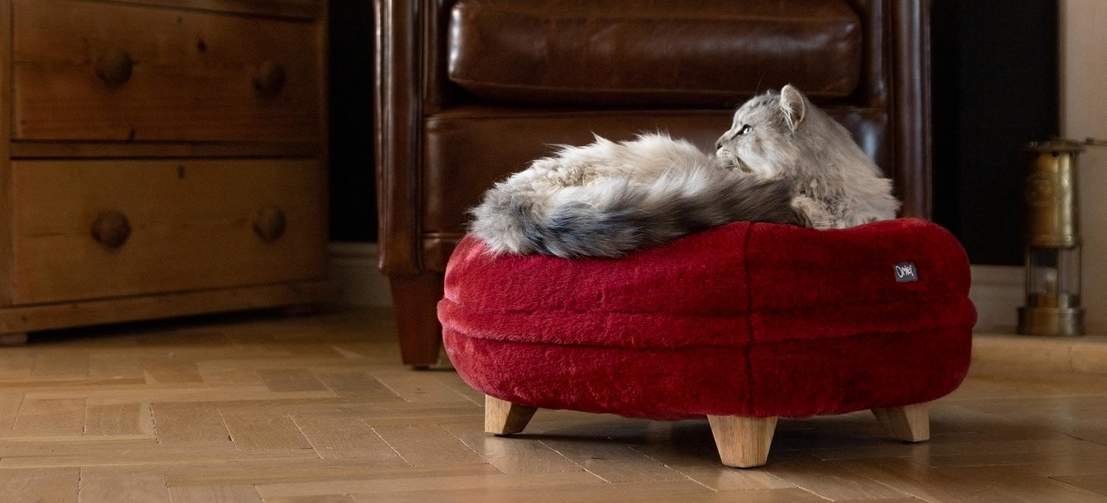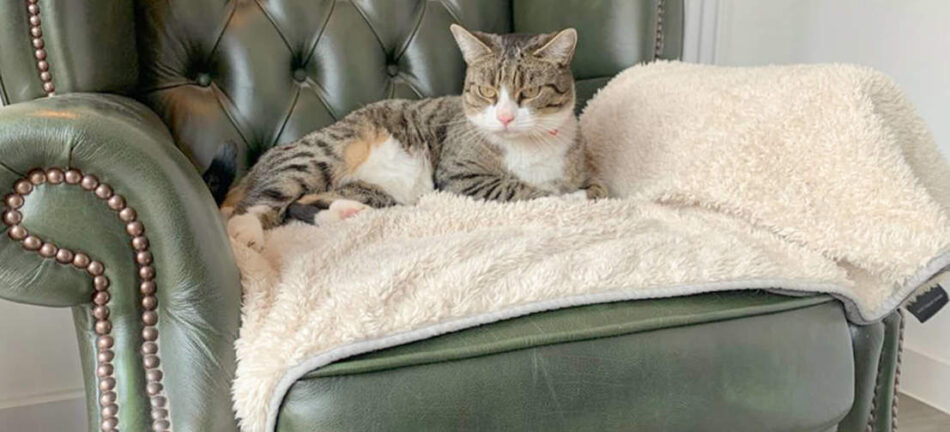Why Isn’t My Cat Meowing?

Cats meow for various reason and the barrage of short meows that greet you when you arrive home, are perhaps the most satisfying for a cat owner.
Cats also meow to get your attention – usually because they want some human contact, but also when they are feeling unwell. The meowing of a cat who wants feeding is another familiar variation on the theme! Cats may also meow if something in their environment is stressing them. It is also common for older cats with Cognitive Dysfunction Syndrome to start meowing in confusion, often at night.
Which cat breeds meow the most?
Some cats are more vocal than others, and although this is partly to do with the individual cat’s personality, the type of breed plays a role too. The cat breeds famous for their vocal behavior include the Birman, Maine Coon, Oriental Shorthair and Siamese.
Siamese cats are perhaps the loudest when it comes to meows. The Maine Coon has a variation on the standard cat meow, making a lovely chirping sound when they feel playful – which is most of the time!
Are there cats that don’t meow?
At the other end of the scale, some of the quietest cat breeds are said to be the Chartreux, Cornish Rex, Persian, Ragdoll and Russian Blue. There will always be cats that defy the meowing stereotypes, though, which is why you may well see the Bengal cat in online lists of the quietest cat breeds and the loudest cat breeds!
Why do cats stop meowing?
There are various reasons why a previously loud cat has gone quiet. These are some of the commonest reasons for a cat to lose its meow.
1. Change in surroundings. If you move home, introduce new furniture or bring strangers home, your cat may go quiet. In these situations they are weighing up the situation, deciding whether or not it’s safe to have ‘business as usual’. This is not actually a bad thing, as a cat who is genuinely anxious or afraid is more likely to meow and cry loudly rather than fall silent.
2. Temporary loss of voice. Cats that have been making a lot of noise – after spending all night fighting off intruders in the backyard, for example – may have a hoarse voice or lose their voices altogether. This is the equivalent of you losing your voice the morning after a party where you had to shout all evening to make yourself heard. The cat’s meow will soon return.
3. Upper respiratory infection. This is uncommon, but if it strikes it is likely to stop your cat meowing. Feline herpes, colds, and calicivirus are common causes, leading to laryngitis. These ailments will come with other symptoms, including runny or gummy eyes, wheezing, panting and breathlessness, coughing and sneezing, lethargy, loss of appetite, or discharge from nose. Any cat displaying these symptoms needs to be taken to the vet.
4. Allergies. These can produce symptoms in a cat similar to respiratory infections, including wheezing and sneezing. These will often stop the cat from meowing. It is important to find the cause of the allergy, and if it isn’t obvious, a vet can advise you on the best course of action.
5. Laryngeal Paralysis. This is a dysfunction of the cat’s larynx (voice box). It is linked to old age, which is why very old cats tend to be quiet. Degeneration of the vocal cords means that the cat is no longer able to produce a sound. There is no discomfort involved, however, and a silent cat will still be a happy cat.
6. Tumors. Cats can be prone to various tumors, growths, polyps and cancers. If these affect the cat’s vocal chords, throat, or mouth it will lose its meow or change the sound drastically.
7. Nerve damage. If a cat has managed to get items such as grass blades or twigs stuck in its throat, it may damage the nerves that control the voice box. A blow to the throat region can produce the same effect, and this sometimes occurs if a cat has fallen or been attacked by another animal.
8. Recent surgery. A cat that has undergone surgery involving anesthesia will have undergone intubation – i.e., had a tube inserted into its air passages. This can lead to internal inflammation that makes the cat unable to produce sound for anything from a few days to two weeks.
Less common reasons for a cat losing its meow include hyperthyroidism and rabies.

In all situations, your cat will need a little time to recover. Medical or age-related conditions can silence the meow, but in most cases the cat will be back to its normal meow in a few days. Give your cat lots of attention and reassurance, and it will soon be back to its old habits!
This entry was posted in Cats